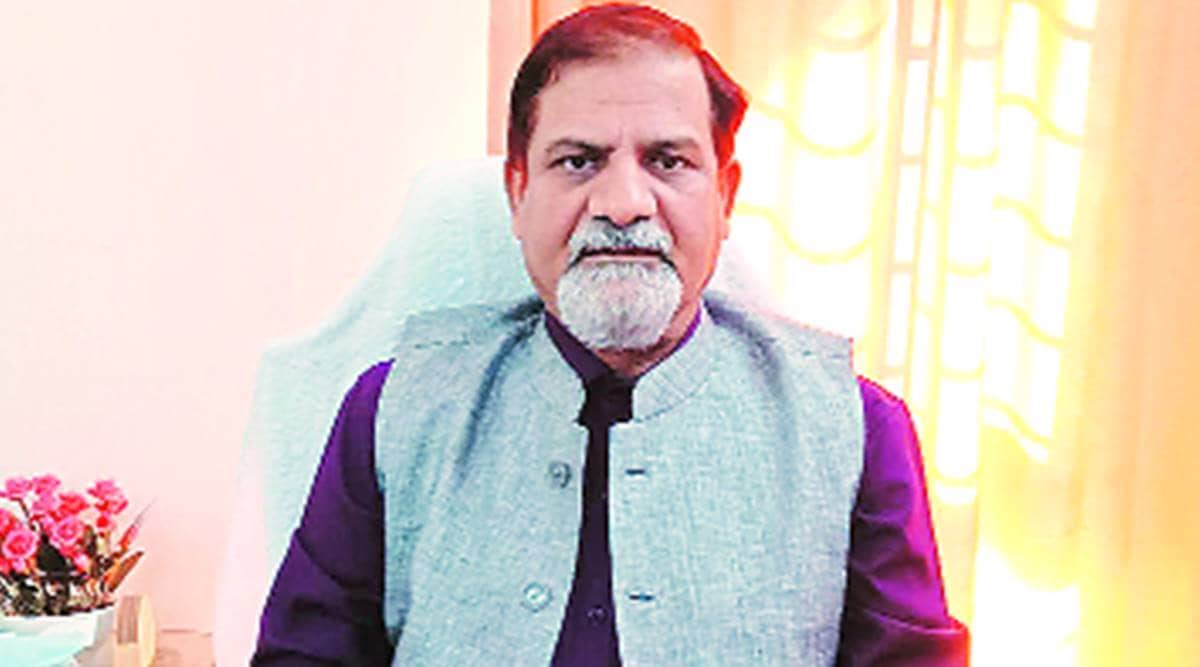 PU Vice-Chancellor, Professor Raj Kumar, in an interview with The Indian Express in October 2020, had refused to comment on the pending Senate elections and had said, "I do not have the permission." (File)
PU Vice-Chancellor, Professor Raj Kumar, in an interview with The Indian Express in October 2020, had refused to comment on the pending Senate elections and had said, "I do not have the permission." (File) Observing that the election process needs to be held at the earliest to prevent “autocratic governance” in Punjab University, the Punjab and Haryana High Court, in a strongly-worded judgement has directed the varsity’s Vice-Chancellor Professor Raj Kumar to ensure that the electoral process for the Senate polls is completed within two months by all means.
Judge Fateh Deep Singh began the judgement with the quote of Charles Caleb Colton, “Power will intoxicate the best hearts, as wine the strongest heads. No man is wise enough, nor good enough, to be trusted with unlimited power.”
The bench noted that little would have the enacters of the Panjab University Act, 1947, realised that the comprehensive and exhaustive legislation would one day “come to be a tool in the the hands of its own academic officer, pursuing not the educational goals but satisfying his own personal ends and thereby, in the process, virtually ousting its own governing body looking after the management and superintendence of this August institution once of International fame and the oldest in this country.”
The court noted: “In a democratic system, elections need to be held periodically which in turn leads to democratic governance and thus, is a very essential function in decision making. Besides, it leads to accountability and raising of conscious level resulting in better and efficient running/governance of an institution.”
PU Senate’s term had ended on October 31 last year. However, the elections were not held and were deferred indefinitely by the varsity’s V-C, for the first time since the Partition.
At least seven of the 90 senators, having been rendered powerless in spite of the Senate being the supreme authority of the university as per law, had in December 2020 approached the High Court through advocates RS Cheema and R Kartikeya, demanding that the Senate elections be held at the earliest. They had alleged that it was under the influence of the ruling party that the manipulation to not hold Senate polls had come about, when the election process had already begun and the deferment by the V-C was illegal and uncalled for. The petitioners had also termed the UT Administration’s advice in the matter to be biased and motivated.
Citing several procedures of law which governs the university and only allows the V-C to be in power ‘in case of urgency’, ‘to be referred to the Syndicate at its meeting for approval’, the court observed in “dismay”, that “all these provisions have been thrown off to the winds and what stands enumerated thereby is that the university is being run as a one-man show, who is in oblivion about how a university can function as per these provisions governing it in the absence of a Syndicate and Senate.”
Upon the argument on the claim made by the university, that the elections have been deferred ‘keeping in view the ongoing pandemic’, the court termed the reason a “way to duck the obligations by the respondents, when it is quite evident to an ordinary prudent man in the country that the elections are being conducted for various bodies, including Assemblies and local bodies, among others, across the country.”
Terming the V-C’s move of postponing the elections, citing the pandemic, “an act laced with malice and motive”. The court observed, “No doubt… the Act empowers the Vice-Chancellor to postpone elections for the time being, but this does not clothe him with unbridled powers to carry on with the exercise of these powers indefinitely when throughout the country elections are being held for various institutions. It abundantly shows this act is laced with malice and motive.”
Further, insisting on proper functioning of the university to ensure that the purpose of its formation is not jeopardised, the court observed that “the election process needs to be held at the earliest so that it does not lead to autocratic governance in the university, affecting its democratic functioning, which could be a scar on its reputation being one of the oldest and prestigious universities of this country and internationally acknowledged as well.”
While the Senate body of the university was dissolved after the expiration of its term, in absence of re-elections, on October 31, PU’s Syndicate- the highest governing body of the varsity, elected each year from the Senate– had expired with the end of 2020.
Several officials, including Punjab Chief Minister Captain Amarinder Singh and leader of opposition Sukhbir Singh Badal, had also written to the Vice President of India and PU Chancellor- M Venkaiah Naidu, calling the delay in polls ‘a death of PU democracy and the beginning of an autonomic rule at the varsity.’
PU Vice-Chancellor, Professor Raj Kumar, in an interview with The Indian Express in October 2020, had refused to comment on the pending Senate elections and had said, “I do not have the permission.”
- The Indian Express website has been rated GREEN for its credibility and trustworthiness by Newsguard, a global service that rates news sources for their journalistic standards.

